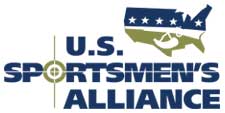
Columbus, OH –-(Ammoland.com)- In a May 19th written statement from the Sierra Club’s Board of Directors, the group has officially gone on record as opposing nearly any and all forms of trapping—period.
The official statement concealed on the group’s website notes that:
“The Sierra Club considers body-gripping, restraining and killing traps and snares to be ecologically indiscriminate and unnecessarily inhumane and therefore opposes their use.”
Sierra Club, thought by many sportsmen to be no friend to hunting —and now an official and publically recognized anti-trapping group— says it supports “humane” methods of solving human and wildlife conflicts. No guidelines on their definition of “humane” were revealed.
Oddly enough, the final sentence in the official statement notes that the Sierra Club recognizes the rights of indigenous people under federal law and treaties in the taking of wildlife.
So is this, however, a nod in favor of trapping?
Trapping is a widely accepted and vital method of reducing raccoons, beavers, muskrats and other species that prey on nesting songbirds, gobble up young waterfowl, destroy countless dollars of timber and crops each year in America, and basically wreak havoc on everything from highways to lakes.
“For a group that’s concerned about the environment, the Sierra Club’s call to end trapping could lead to one of the most damaging conservation disasters in American history,” said Bud Pidgeon, president and CEO of the U.S. Sportsmen’s Alliance. “Trapping is accepted by and a necessary tool of wildlife professionals from coast to coast. But, this policy from the Sierra Club comes as no surprise to the vast majority of sportsmen and women.”
To view the Sierra Club Board of Directors memo, go to https://www.sierraclub.org/policy/conservation/Trapping-Wildlife.pdf
About U.S. Sportsmen’s Alliance
The U.S. Sportsmen’s Alliance is a national association of sportsmen and sportsmen’s organizations that protects the rights of hunters, anglers, and trappers in the courts, legislatures, at the ballot, in Congress, and through public education programs. Visit www.ussportsmen.org.

